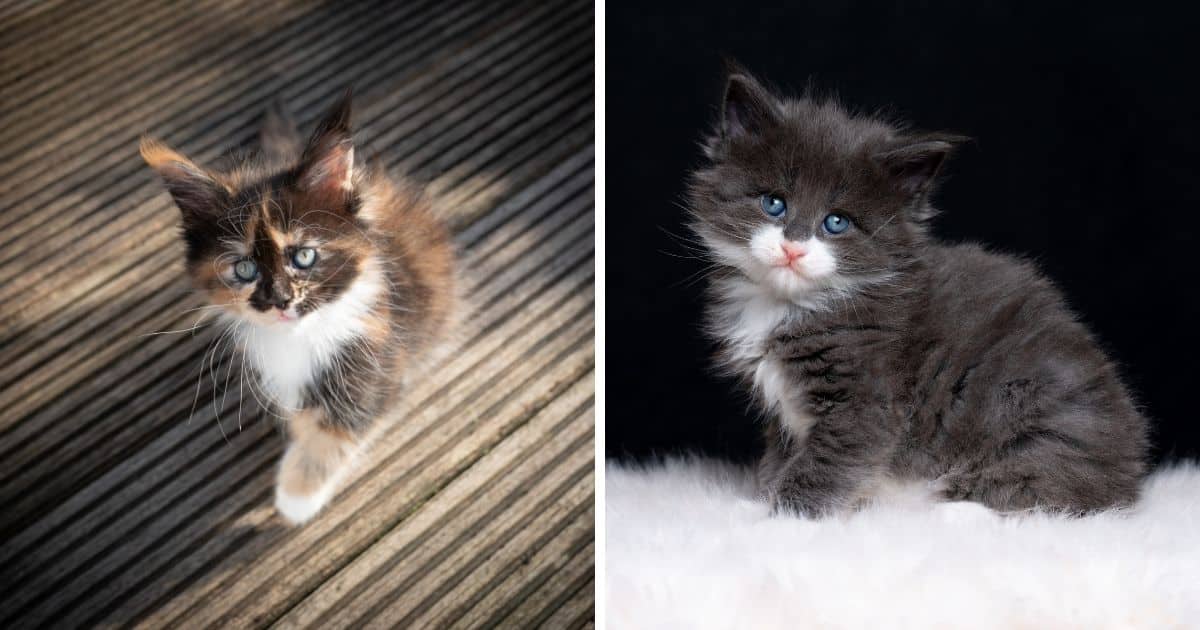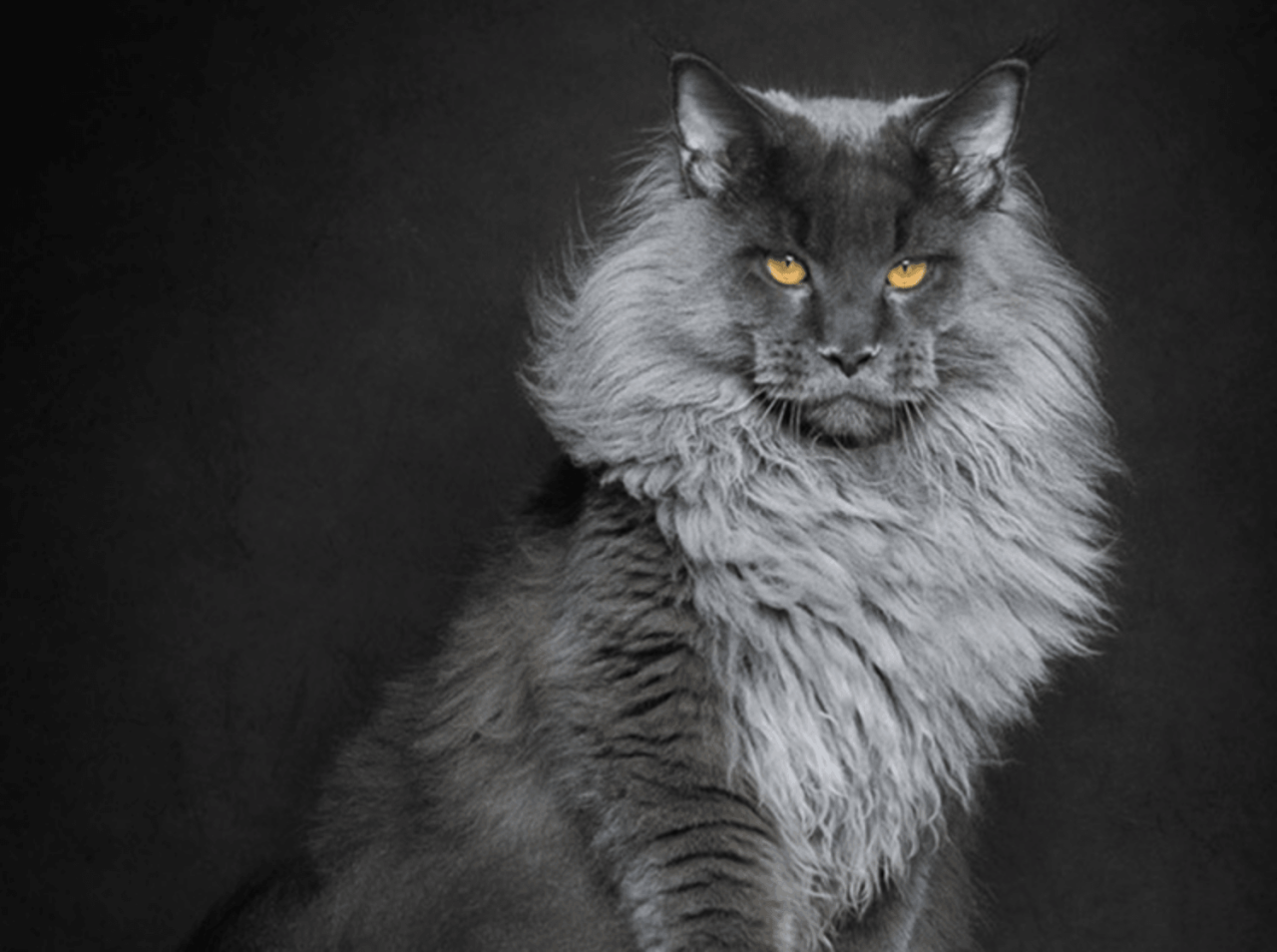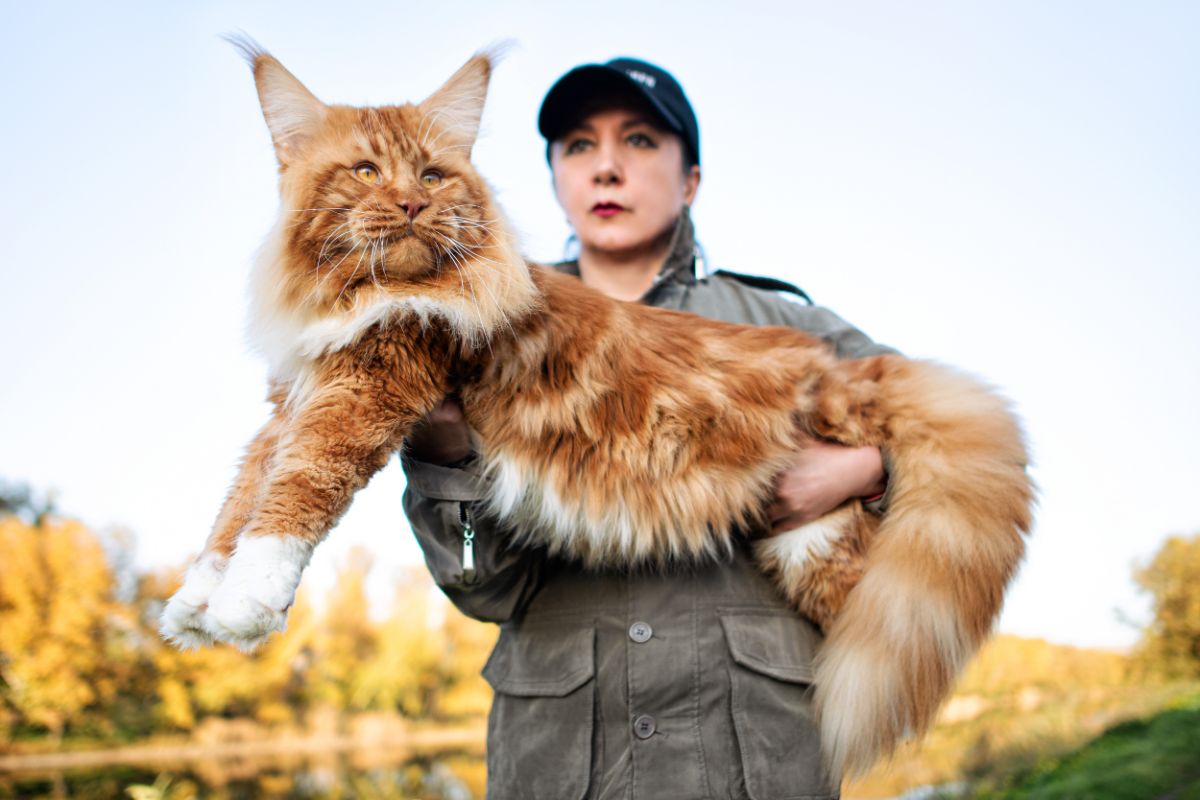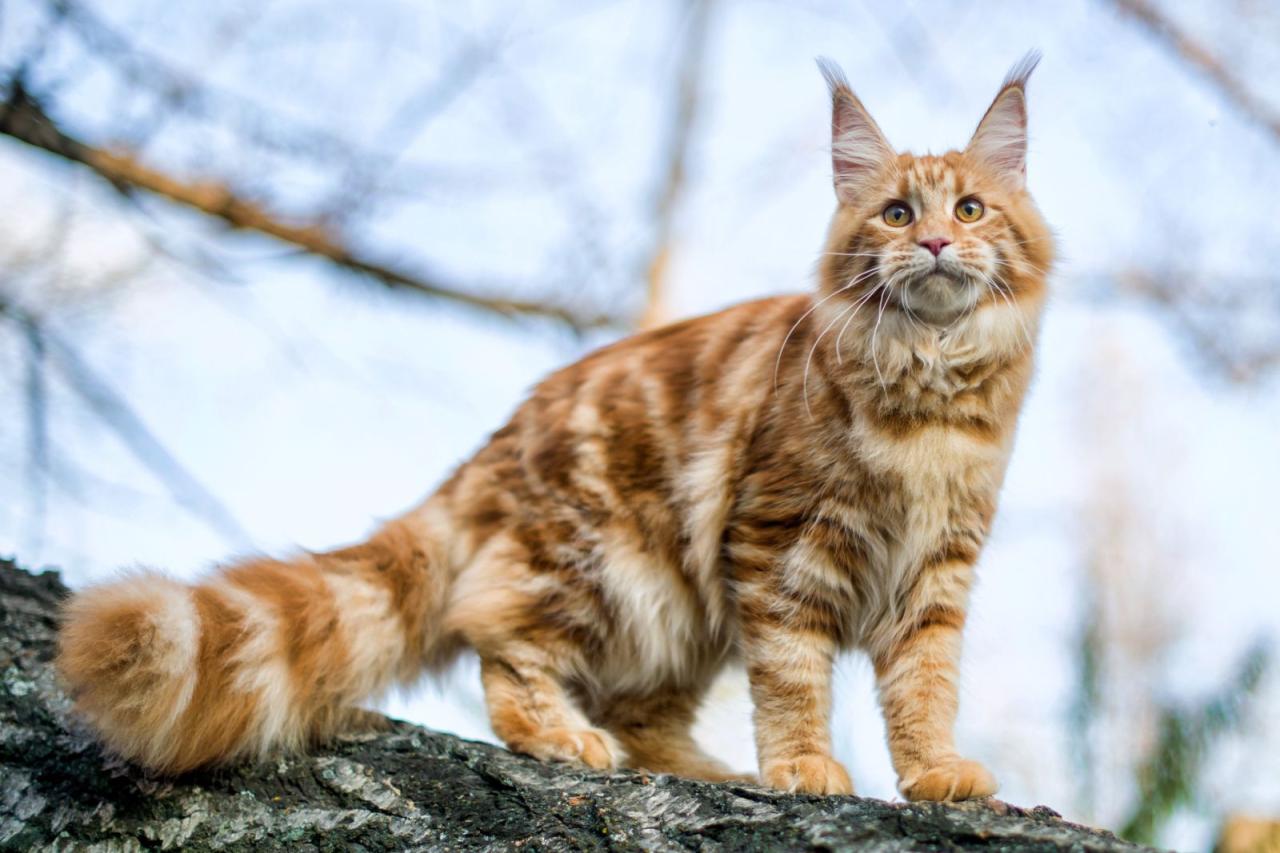Maine Coon breeders are renowned for their dedication to preserving the unique characteristics of this beloved feline breed. Join us as we delve into the fascinating world of Maine Coons, exploring their history, identifying reputable breeders, and providing expert guidance on their care and well-being.
From their captivating physical attributes to their gentle and affectionate nature, Maine Coons have captured the hearts of cat enthusiasts worldwide. Our comprehensive guide will equip you with the knowledge and resources necessary to find a reputable breeder and provide your feline companion with the best possible life.
Maine Coon Breeders

Maine Coon Breeders: History and Background
The Maine Coon is a large, semi-longhaired cat breed originating in the U.S. state of Maine. The breed is thought to have developed naturally from domestic cats brought to Maine by English settlers in the 18th century. Maine Coons are known for their rugged appearance, their intelligence, and their playful nature.
Physical Characteristics
Maine Coons are large cats, with males typically weighing 13-18 pounds and females weighing 8-12 pounds. They have a long, muscular body with a broad chest and a long, bushy tail. Their fur is thick and dense, with a waterproof undercoat that keeps them warm in cold weather.
Maine Coons come in a variety of colors and patterns, including brown tabby, black, and white.
Temperament
Maine Coons are known for their gentle and friendly personality. They are very social cats and enjoy spending time with people. They are also very playful and love to chase toys and climb trees. Maine Coons are very intelligent cats and can be easily trained.
Reputable Breeders
When seeking a Maine Coon, identifying reputable breeders is crucial. They prioritize the health and well-being of their cats, adhering to ethical breeding practices. To ensure you find a trustworthy breeder, consider the following tips:
- Visit the breeder in person:This allows you to observe the cats’ living conditions, meet the breeder, and ask questions about their breeding practices.
- Request health records:Reputable breeders will provide documentation of the cats’ health, including vaccinations, deworming, and genetic screening results.
- Check for references:Ask the breeder for references from previous customers who can attest to their reputation and the quality of their cats.
- Consider breeder organizations:Breeders who are members of reputable organizations, such as the Cat Fanciers’ Association (CFA) or The International Cat Association (TICA), adhere to strict breeding standards and ethical guidelines.
Health Testing and Genetic Screening
Reputable breeders prioritize the health of their cats by conducting thorough health testing and genetic screening. This ensures that they breed healthy kittens free from genetic disorders.
- Health testing:Breeders should perform regular health checks on their cats, including examinations for heart murmurs, hip dysplasia, and other common health issues.
- Genetic screening:Breeders should screen their cats for known genetic disorders common in Maine Coons, such as hypertrophic cardiomyopathy (HCM) and polycystic kidney disease (PKD).
By choosing a reputable breeder who prioritizes health testing and genetic screening, you increase the chances of bringing home a healthy and well-adjusted Maine Coon companion.
Breeding Practices

Ethical Maine Coon breeding upholds the integrity of the breed while prioritizing the well-being of cats. Responsible breeders adhere to strict standards to maintain breed health, preserve genetic diversity, and prevent health issues.
Breeding Considerations
- Health Screening:Breeders screen breeding cats for genetic diseases, ensuring they are free from inherited conditions that could impact their health or offspring.
- Genetic Diversity:Breeders carefully select breeding pairs to maximize genetic diversity within the Maine Coon population, preventing inbreeding and associated health risks.
- Temperament:Breeders focus on preserving the characteristic gentle and social temperament of Maine Coons by selectively breeding cats with desirable personality traits.
Responsible Breeding Practices
Responsible breeding practices ensure the health and well-being of Maine Coons:
- Proper Nutrition and Care:Breeders provide breeding cats with a nutritious diet, regular veterinary checkups, and a stimulating environment to promote optimal health.
- Breeding Age:Breeders wait until cats are of appropriate breeding age to ensure physical and reproductive maturity.
- Litter Management:Breeders limit litter size and monitor kittens closely to ensure their health and development.
- Socialization:Breeders socialize kittens early on to ensure they are well-adjusted and comfortable around people and other animals.
Kitten Care and Health

Maine Coon kittens are adorable and require special care to ensure their well-being. This includes proper feeding, grooming, and vaccinations. Additionally, understanding common health issues in Maine Coons and taking preventive measures is crucial.
Feeding
Maine Coon kittens need a diet rich in protein and calories to support their rapid growth. Feed them a high-quality kitten food specifically formulated for their breed. Follow the feeding instructions on the packaging, adjusting the amount as they grow.
Provide fresh water at all times.
Grooming
Maine Coons have long, thick fur that requires regular grooming. Brush them daily to remove loose hair and prevent mats. Bathe them occasionally using a gentle shampoo specifically designed for cats. Trim their nails regularly to prevent scratching.
Vaccinations
Vaccinations are essential for protecting Maine Coon kittens from common diseases. Follow your veterinarian’s recommended vaccination schedule, which typically includes vaccines for feline panleukopenia, feline herpesvirus, feline calicivirus, and rabies.
Common Health Issues
Maine Coons are generally healthy, but they can be prone to certain health issues, including:
Hypertrophic cardiomyopathy (HCM)
A condition that causes thickening of the heart muscle.
Polycystic kidney disease (PKD)
A condition that causes cysts to develop in the kidneys.
Hip dysplasia
A condition that affects the hip joint, causing pain and lameness.Regular veterinary checkups and preventive measures, such as genetic testing and screening, can help detect and manage these health issues early on.
Socialization and Training
Early socialization and training are crucial for Maine Coons’ well-being and behavior. Socializing them with various people, animals, and environments helps them develop confidence and adaptability. Training enhances their obedience and teaches them appropriate behaviors.
Techniques for Training Maine Coons
*
-*Positive Reinforcement
Reward desired behaviors with treats, praise, or playtime to encourage repetition.
-
-*Clicker Training
Use a clicker to mark the exact moment a desired behavior occurs, then reward.
-*Leash Training
Gradually introduce your Maine Coon to wearing a leash and walking on a leash in controlled environments.
-*Litter Box Training
Place the litter box in a quiet, easily accessible location and regularly clean it to encourage proper litter box usage.
-*Scratching Post Training
Provide scratching posts and redirect your Maine Coon to use them instead of furniture by placing them in high-traffic areas.
Maine Coon Associations and Resources
The Maine Coon is a beloved and renowned breed with a dedicated community of breeders and enthusiasts. Several reputable organizations provide resources and support for Maine Coon owners and breeders, promoting the preservation and well-being of these magnificent felines.
One such organization is the Maine Coon Breeders and Fanciers Association (MCBFA). Founded in 1973, the MCBFA is the oldest and largest registry for Maine Coons. It establishes breed standards, organizes cat shows, and maintains a breeder directory to connect prospective owners with reputable breeders.
Breed Standards
Breed standards define the ideal characteristics of a Maine Coon. The MCBFA’s breed standard Artikels the physical and temperamental traits that distinguish the breed, including its distinctive appearance, size, and personality.
Cat Shows
Cat shows provide a platform for breeders to showcase their finest Maine Coons and compete for prestigious awards. The MCBFA organizes cat shows throughout the United States, offering breeders an opportunity to demonstrate their dedication to the breed and contribute to its preservation.
Breeder Directories
Breeder directories maintained by organizations like the MCBFA provide a valuable resource for prospective owners seeking reputable breeders. These directories list breeders who adhere to ethical breeding practices, ensuring the health and well-being of their cats.
Adoption vs. Purchasing from Breeders

Adopting a Maine Coon from a shelter or rescue organization and purchasing a kitten from a breeder offer different advantages and disadvantages. Understanding these variations can help you make an informed decision that best suits your lifestyle and preferences.
Adoption, Maine coon breeders
Pros:
- Saving a life:Adopting a Maine Coon from a shelter or rescue organization provides a loving home to an animal in need, potentially saving its life.
- Lower cost:Adoption fees are typically lower than the cost of purchasing a kitten from a breeder, making it a more affordable option.
- Variety of ages and personalities:Shelters and rescue organizations often have Maine Coons of various ages and personalities, allowing you to find a cat that best matches your lifestyle.
Cons:
- Unknown history:Adopted Maine Coons may have an unknown history, including their health and temperament, which can be a concern for some individuals.
- Potential health issues:Maine Coons adopted from shelters or rescue organizations may have underlying health issues that require additional care and expenses.
- Waiting lists and competition:Adopting a Maine Coon from a shelter or rescue organization can involve waiting lists and competition, as many people are interested in adopting these cats.
Purchasing from Breeders
Pros:
- Known lineage:Purchasing a kitten from a breeder provides you with a known lineage, ensuring the cat’s breed purity and potential health issues.
- Specific traits:Breeders can selectively breed Maine Coons for specific traits, such as coat color, pattern, or temperament, allowing you to choose a cat that meets your preferences.
- Health guarantees:Reputable breeders typically offer health guarantees for their kittens, providing peace of mind and protection against unexpected medical expenses.
Cons:
- Higher cost:Purchasing a kitten from a breeder can be significantly more expensive than adopting one from a shelter or rescue organization.
- Waiting lists:Breeders often have waiting lists for their kittens, as their litters are typically smaller than those found in shelters or rescue organizations.
- Limited availability:Maine Coons are a popular breed, so finding a reputable breeder with available kittens can be challenging.
Maine Coon Lifestyle
Maine Coons are known for their adaptability and can thrive in various living environments. However, providing an ideal space that caters to their specific needs is essential for their well-being and happiness.
Housing and Space Requirements
Maine Coons are large and active cats that require ample space to roam, play, and explore. A spacious home with multiple levels and vertical spaces is ideal. Cat trees, shelves, and window perches allow them to climb, jump, and survey their surroundings.
Indoor/Outdoor Considerations
While Maine Coons can adapt to both indoor and outdoor living, indoor cats generally live longer and healthier lives. If allowed outdoors, ensure a secure and supervised environment, as they are known to be adventurous and may wander off.
Grooming and Shedding
Maine Coons have a thick, double-layered coat that requires regular grooming. Brushing several times a week helps remove loose hair, prevent mats, and distribute natural oils. During shedding seasons, daily brushing may be necessary. Regular baths can also help keep their coats clean and healthy.
Health Concerns and Veterinary Care
Maine Coons are generally healthy cats, but like all breeds, they are prone to certain health concerns. Some of the most common health issues seen in Maine Coons include:
Hypertrophic cardiomyopathy (HCM)
A condition in which the heart muscle becomes thickened, leading to heart failure.
Polycystic kidney disease (PKD)
A condition in which cysts develop in the kidneys, leading to kidney failure.
Hip dysplasia
A condition in which the hip joint does not develop properly, leading to pain and lameness.
Dental disease
Maine Coons are prone to dental disease, including gingivitis and periodontitis.
Obesity
Maine Coons are prone to obesity, which can lead to a number of health problems, including heart disease, diabetes, and arthritis.Regular veterinary checkups are essential for detecting and treating health problems early on. Your veterinarian will be able to recommend a schedule of checkups and vaccinations that is right for your cat.
In addition to regular checkups, there are a number of things you can do at home to help keep your Maine Coon healthy, including:
- Providing a healthy diet and plenty of exercise
- Brushing your cat’s teeth regularly
- Keeping your cat’s weight under control
- Spaying or neutering your cat
Maine Coon Grooming and Nutrition
Maine Coons possess luxurious, flowing coats that demand meticulous grooming. Their double-layered fur consists of a dense undercoat and long, silky guard hairs. Regular brushing is paramount to prevent mats and tangles, and maintain the coat’s natural luster.
Grooming Guide
* Brushing Frequency:Brush your Maine Coon at least twice a week, preferably daily.
Brushing Technique
Begin by gently removing any loose hair with a wide-toothed comb. Follow with a slicker brush to remove undercoat and mats. Finally, use a pin brush to distribute natural oils and add shine.
Bathing Frequency
Maine Coons typically do not require frequent bathing. Only bathe when necessary, such as after rolling in something unpleasant. Use a gentle, cat-specific shampoo and thoroughly rinse and dry your cat.
Nutritional Needs
Maine Coons have specific nutritional requirements to support their large size and active lifestyle. A high-quality diet rich in protein, healthy fats, and essential vitamins and minerals is crucial.* Protein:Aim for a diet with at least 30% protein from high-quality sources like chicken, fish, or lamb.
Fats
Healthy fats provide energy and support skin and coat health. Look for diets containing omega-3 and omega-6 fatty acids.
Other Nutrients
Ensure your cat’s diet includes essential vitamins, minerals, and taurine, an amino acid vital for heart and eye health.Consider consulting with your veterinarian to determine the most appropriate diet for your Maine Coon’s age, activity level, and health status.
Wrap-Up
As you embark on your journey as a Maine Coon owner, remember that these magnificent creatures require love, attention, and a commitment to their health and happiness. By choosing a reputable breeder and following the expert advice provided in this guide, you can create a fulfilling and enriching life for your furry friend.
The world of Maine Coons is a tapestry woven with history, passion, and the unwavering dedication of breeders who strive to preserve the legacy of this exceptional feline breed. May your journey be filled with countless moments of joy and companionship as you share your life with a Maine Coon.
